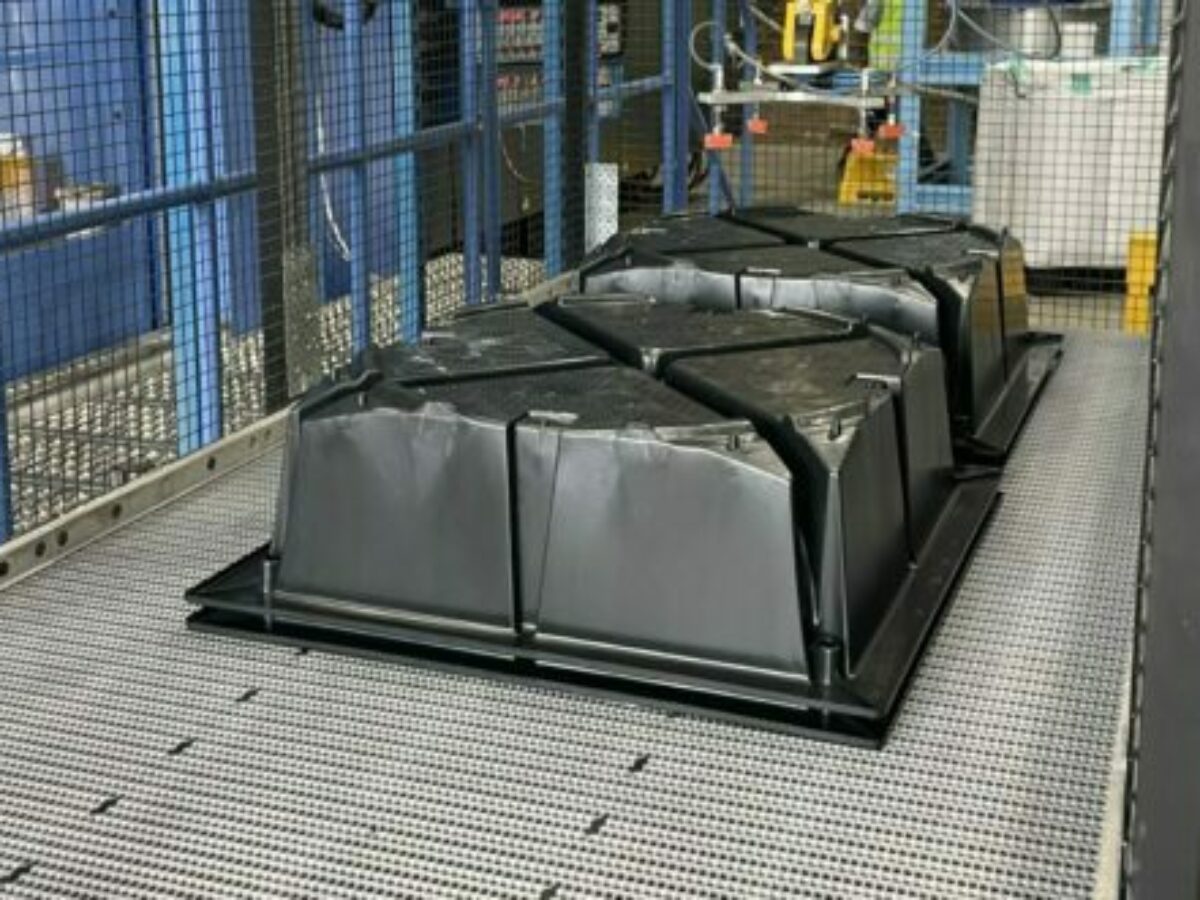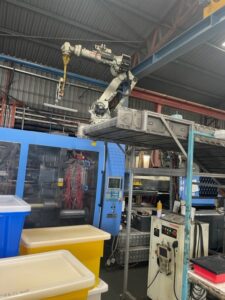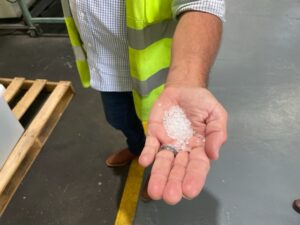Hold the foam, says construction products maker (podcast)

There are mixed signals from government when it comes to sustainability, according to Holloway Group. Brent Balinski speaks to the company's Matt Holloway and Jim Prior.
Last week Victoria banned the sale of single-use plastics, following a similar ban in November in NSW.
Among the banned items are single-use expanded polystyrene food and drink containers. It may be among a list of problematic modern-day materials, but polystyrene remains in regular use for purposes including packaging and transport, specialist packaging for medical purposes, and in the building and construction industry.
Void formers – used for the pouring of concrete slabs – are overwhelmingly made of polystyrene, a low-grade product with a highly negative impact on the environment, COO of Holloway Group Jim Prior explains. It flakes off when it’s cut or moved, and then gets carried away by a wind.
“There isn’t a builder or concreter or supplier in Australia that doesn’t have concern and disdain, quite frankly, for the impracticalities of that,” Prior tells us during a visit to the company’s factory in Minto, south-west of Sydney.
Prior came to Holloway in 2021 via an acquisition of Biax Foundations, which he remains General Manager of.
 Holloway Group is evangelical about the need to lower the use of polystyrene, which can take centuries to decompose. Its Biax product is a replacement for styrene pods. According to the company their product occupies a seventh of the space in transport due to its nesting design, has been used in close to 3,000 slabs so far, and could replace 25,000 tonnes of polystyrene per year if it replaced regular pods.
Holloway Group is evangelical about the need to lower the use of polystyrene, which can take centuries to decompose. Its Biax product is a replacement for styrene pods. According to the company their product occupies a seventh of the space in transport due to its nesting design, has been used in close to 3,000 slabs so far, and could replace 25,000 tonnes of polystyrene per year if it replaced regular pods.
The product earned Holloway a place on the “Property, Construction & Transport” category of the Australian Financial Review‘s Most Innovative Companies Awards last year.
Holloway bought Biax to add to its stable of six other businesses, which cover applications including supply chain and storage, asphalt alternatives, and stormwater management.
Recycled plastics feature highly among these, and the company estimates it uses over 200,000 kilograms of its proprietary recycled polypropylene formula each month.
CEO Matt Holloway, whose father founded the business in the mid-1980s as a contract injection moulder, explains that its focus shifted to proprietary products around about the time of the GFC.
A sustainability focus has also emerged in product and business development.
“By a mile, recycled polypropylene is our most used resin throughout the facility, so a majority of our business units and their SKUs use recycled polypropylene. A portion of that is procured in-house, so we have a full cyclic recycling application inhouse,” Holloway explains.
 “And because demand supersedes the feedstock that we’ve generated in-house, we also buy in recycled polypropylene, which is made from post-industrial plastic waste.”.
“And because demand supersedes the feedstock that we’ve generated in-house, we also buy in recycled polypropylene, which is made from post-industrial plastic waste.”.
The pair express frustration in getting recognition from governments for Biax.
Prior cites a recent grant for a maker of styrene products to establish a factory in regional NSW. He doesn’t mention them by name, but it's likely he is referring to a $640,000 NSW government grant to Styrofoam Industries (reported by the ABC in December) to open a polystyrene waffle pod factory in Queanbeyan.
In this episode of @AuManufacturing Conversations with Brent Balinski, we hear from Holloway and Prior about their efforts to create a foundational change to the way houses are built, their approach to innovation, considering “the more evil of the evils” when restricting the use of certain materials, and more.
Episode guide
0:30 – The second-generation company’s history, beginning in the mid-1980s.
2:35 – Jim Prior, COO, joins company via acquisition of Biax in September 2021.
4:50 – What Holloway Group does, what its products are, and who are its customers.
7:04 – Are people procuring locally? What is the injection moulding business noticing. “I think there is a degree of parochialism that is alive and well here, too, with some of the flagship businesses that have come to us and openly stated around this table their appetite to support more [Australian businesses.] There’s always going to be a commercial and financial driver, but they’ve been pretty candid about the fact that they just sort of feel like it’s just right as well, which has been really encouraging.”
8:20 – Recycled polypropylene is “by far” their most used resin. Some is procured in-house (cyclic recycling) and reused. Also buy in recycled PP from post-industrial waste.
9:28 – Developing their in-house blend of PP, designed for specific applications.
10:18 – Void formers are overwhelmingly made of polystyrene, a low-grade product with a high impact on the environment.
14:30 – The role of innovation at the company and how it’s understood.
16:02 – Challenging the staff “to think a little laterally” about what they can do. “No question or suggestion is stupid, and we want to hear more and more of them.”
19:02 – Rigid, injection moulded plastics are a different thing to single-use items like straws and shopping bags, and there are also many ways they can be made more sustainable.
20:08 – Some reasons why governments need to think differently about plastics.
23:10 – What are the main skills shortages felt at the company – engineering and toolmaking – and how are these being addressed?
25:10 – The difficulties in getting heard by governments.
Editor's note: A previous version of this article listed the amount of slabs using Biax as over 800, the number given on Holloway Group's website at the time. This has been updated to “close to 3,000 slabs”.
@aumanufacturing Sections
Analysis and Commentary Awards casino reviews Defence Gambling Manufacturing News Online Casino Podcast Technology Videos





